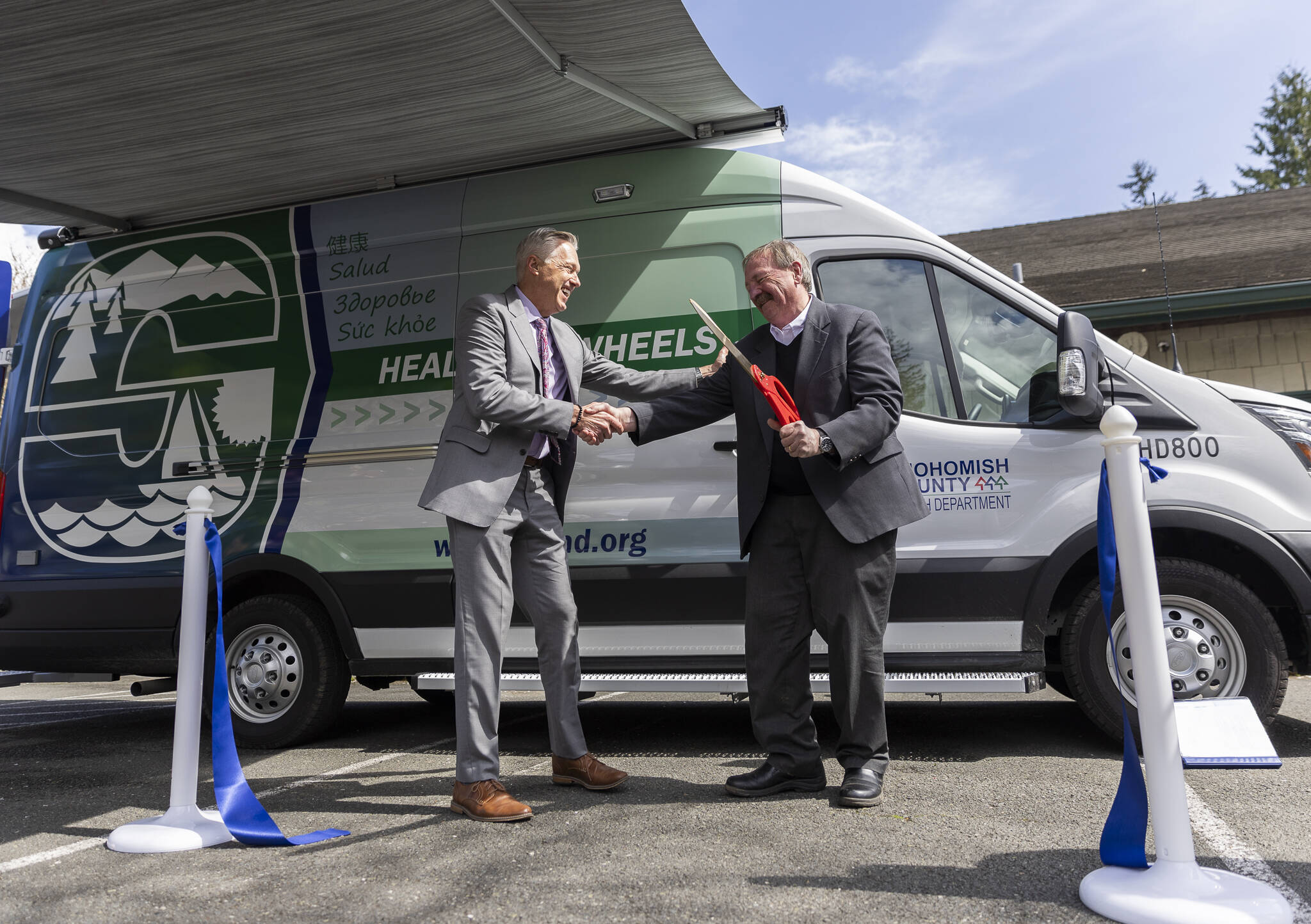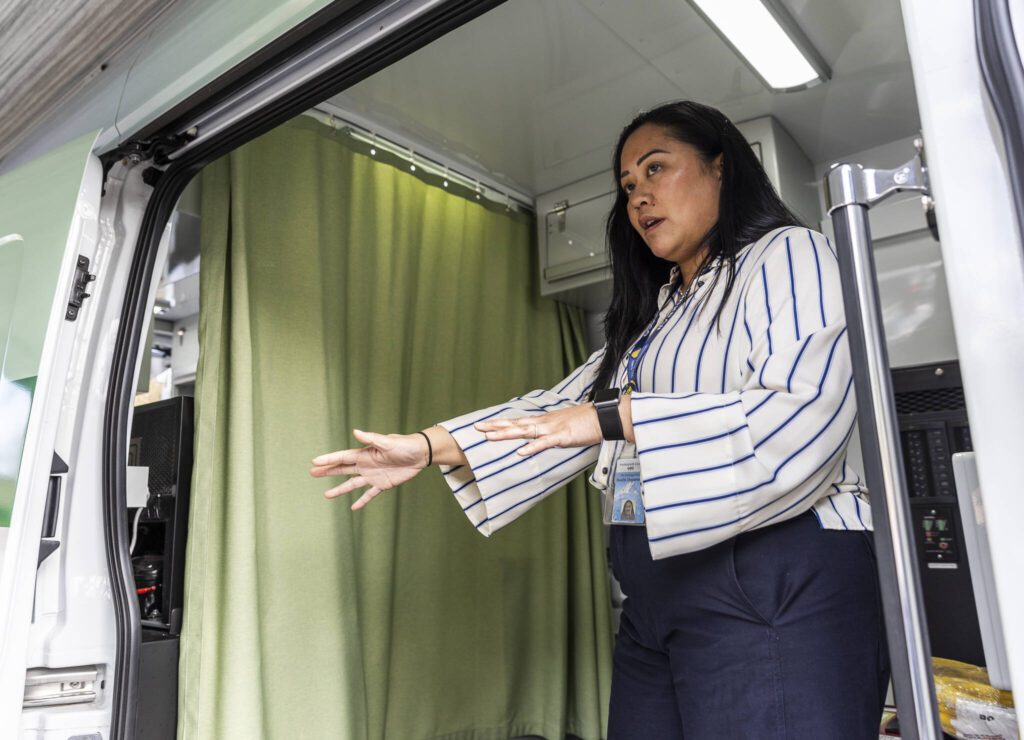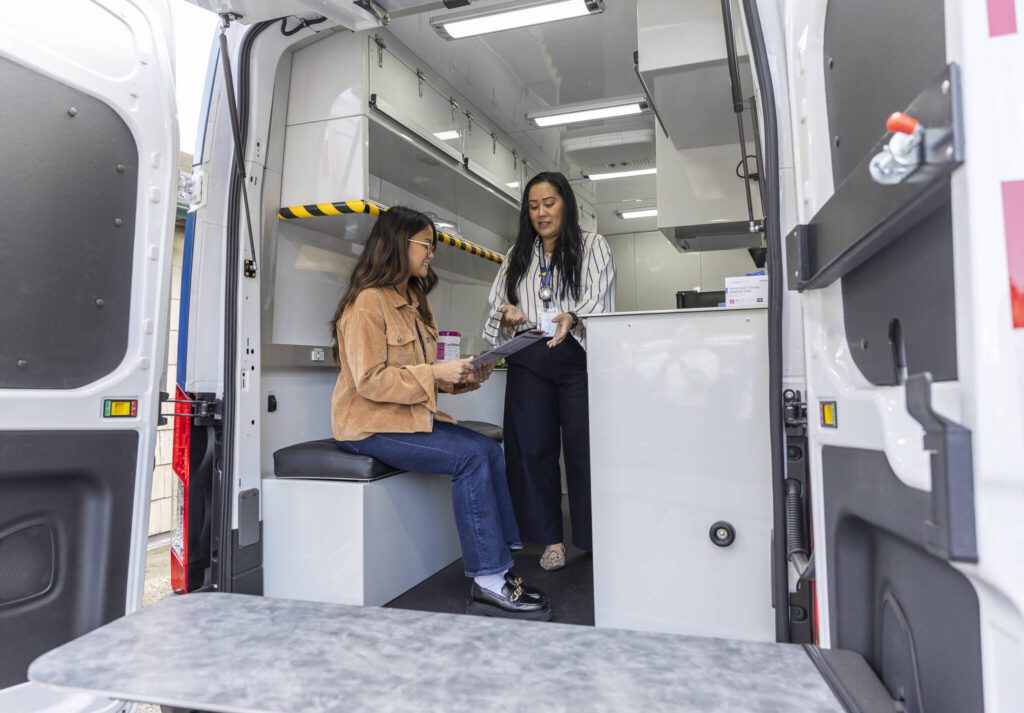EVERETT — The Snohomish County Health Department unveiled on Wednesday a new mobile health van — a project the department undertook to increase vaccination rates and bring care to rural or underserved areas.
Along with vaccinations, the new van can provide screenings for sexually transmitted diseases or Hepatitis C and share information on injury and violence prevention. About 20 to 25 people per hour can be vaccinated in the van, and about four people per hour could be screened for sexually transmitted diseases, said the health department’s assistant director, Pia Sampaga-Khim.
“It’s a great opportunity for SHD, for our staff, to be out in the community, for us to be more visible,” she said Wednesday. “… It’s really important for us to be serving folks who don’t have access.”
The van will be sent to events as a form of outreach, but also to geographic locations in the county the health department knows are currently underserved. Using internal data, the department hopes to target populations with low vaccination rates and bring the van to help increase vaccine coverage.
“I’m hoping that we’re really going to improve those vaccine rates overall, but we’re really going to hit the communities that are generally adversely affected by disease,” said Dennis Worsham, director of the health department.
The van, in the works for two years, contains a generator for backup power, refrigeration to keep vaccines at proper temperatures and is set to be used by multiple divisions from the department.
The unveiling took place amid a difficult time for public health after the Trump administration canceled $12 billion in public health funding nationwide on March 26. The Snohomish County Health Department is facing a $3.4 million hit as part of those cuts.
The new van, however, can hopefully fill some of the gaps left over by the federal reductions, Worsham said.
“We’re excited. The timing is perfect,” he said. “We’re moving forward and taking our foot off the brakes, so to speak, with the van and really stepping forward in our communities when it’s needed.”
The health department spent $296,000 of one-time American Rescue Plan Act funds on the van. It likely won’t be on the road until June, Sampaga-Khim said, because staff need to go through training.
Will Geschke: 425-339-3443; william.geschke@heraldnet.com; X: @willgeschke.
Talk to us
> Give us your news tips.
> Send us a letter to the editor.
> More Herald contact information.



























